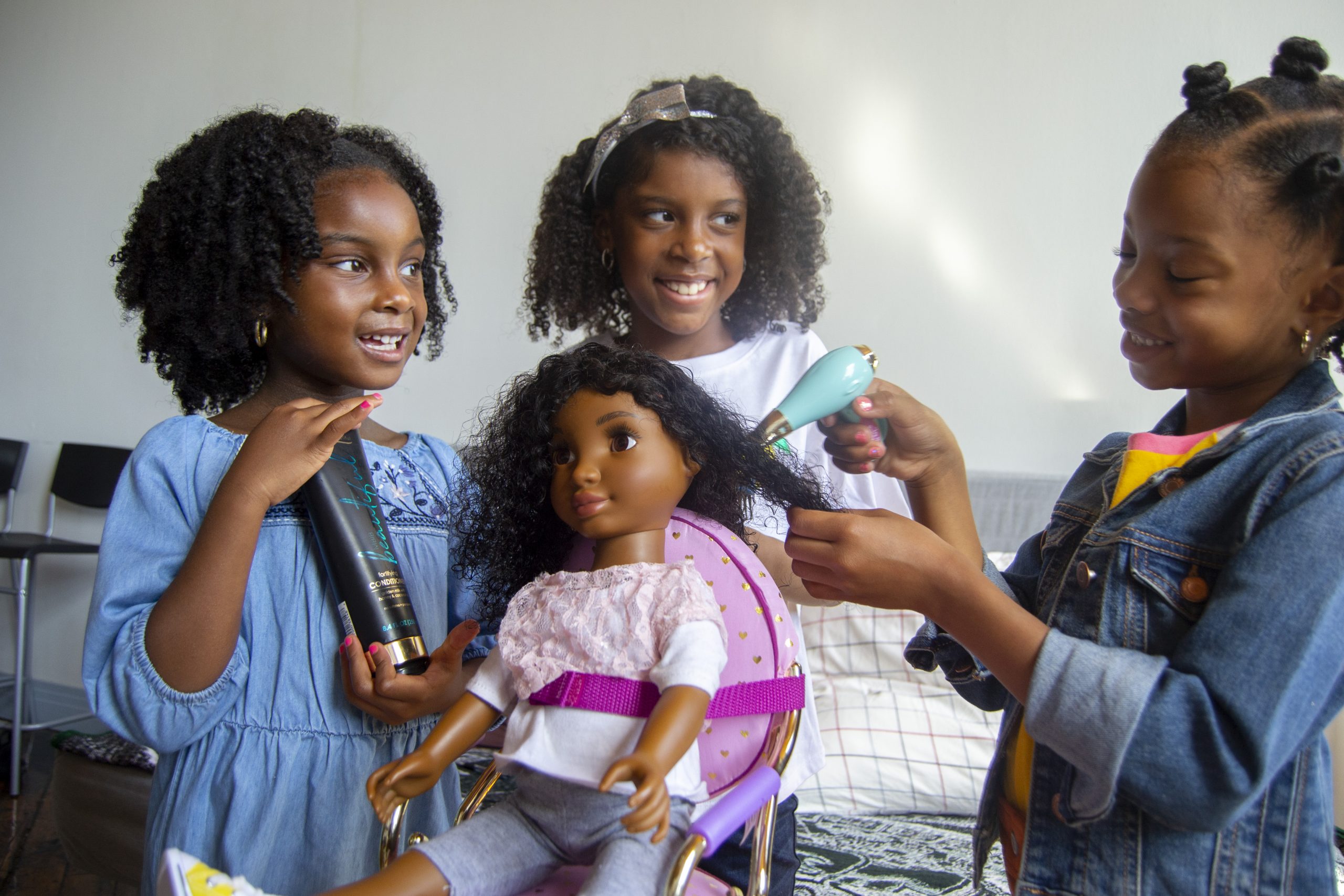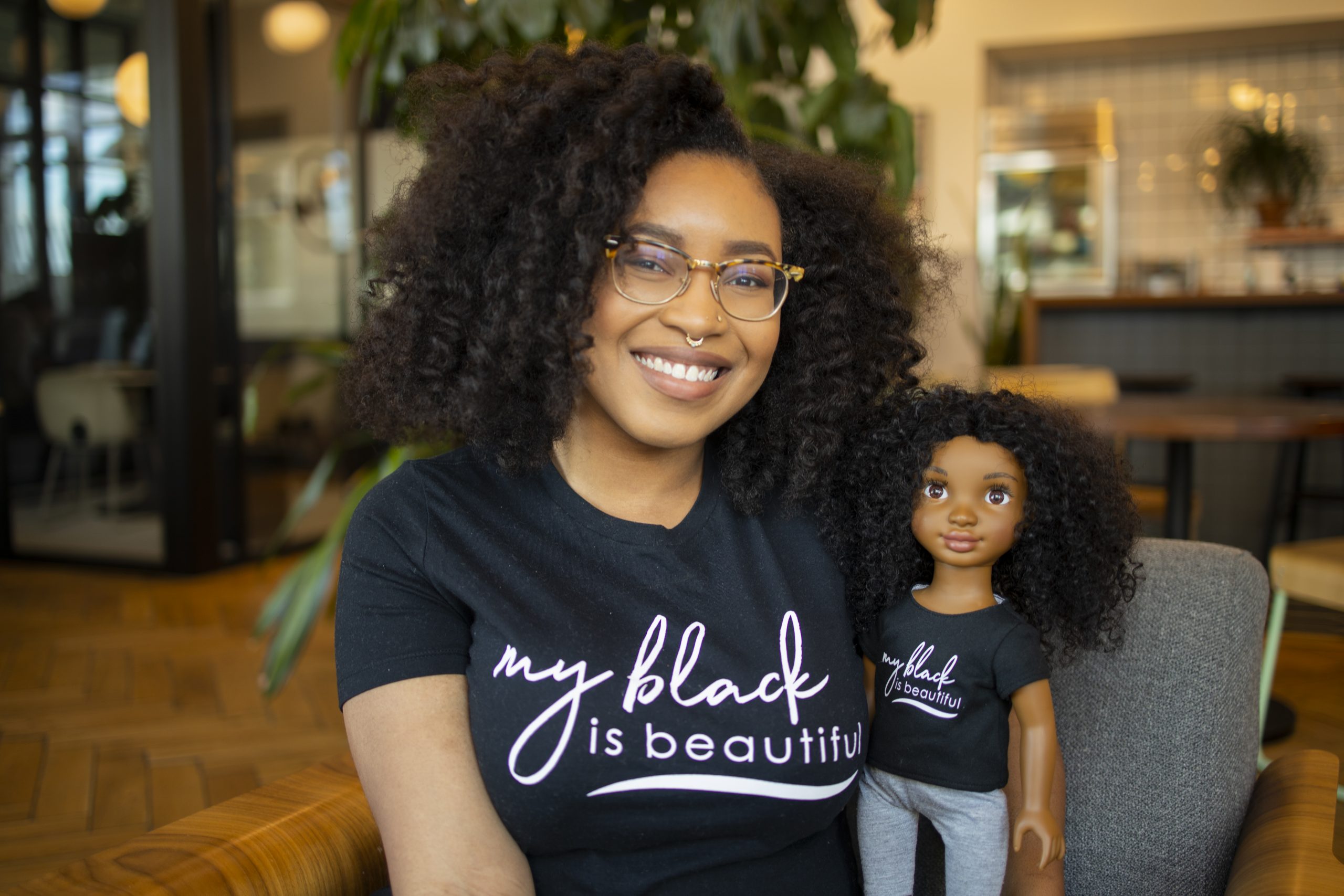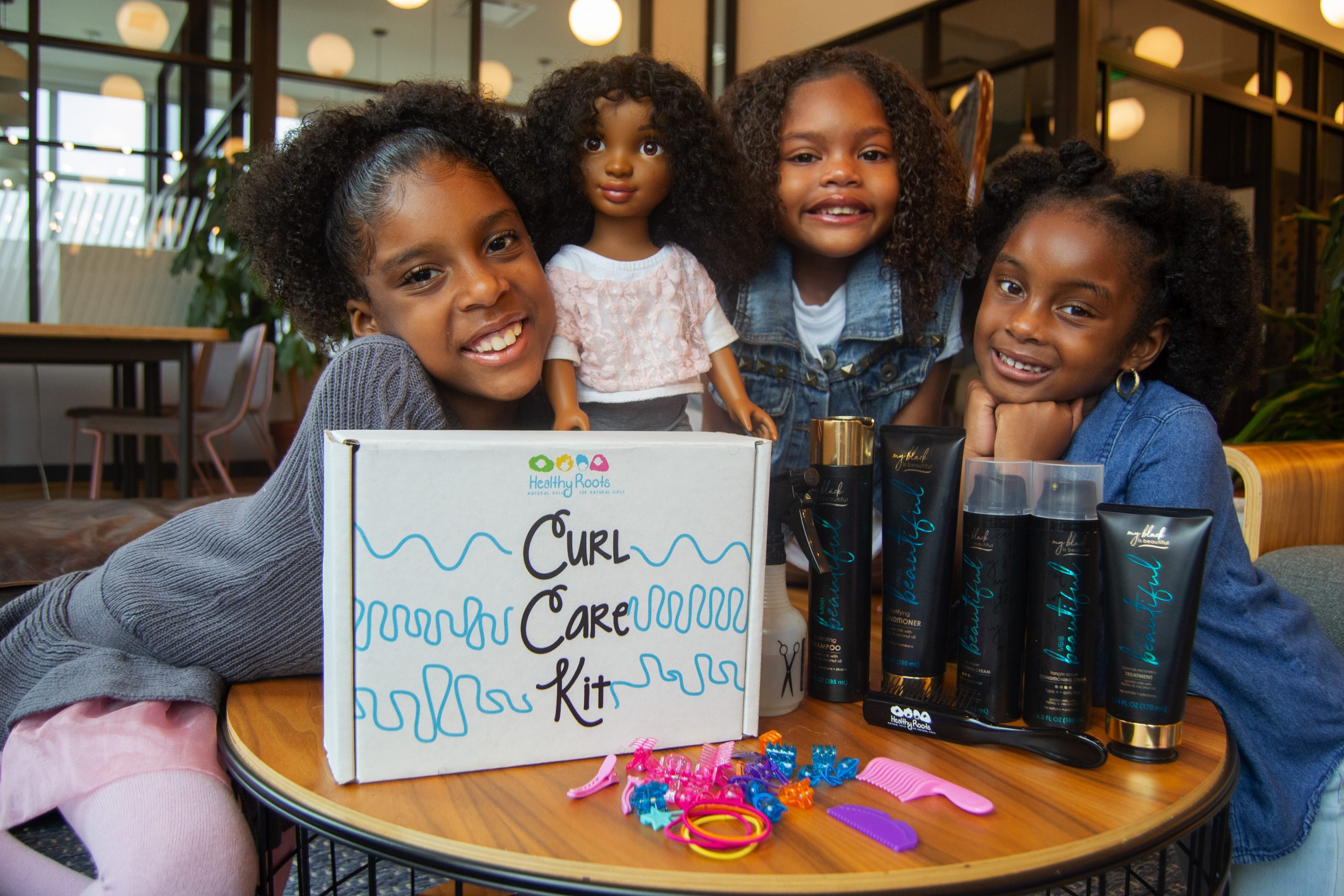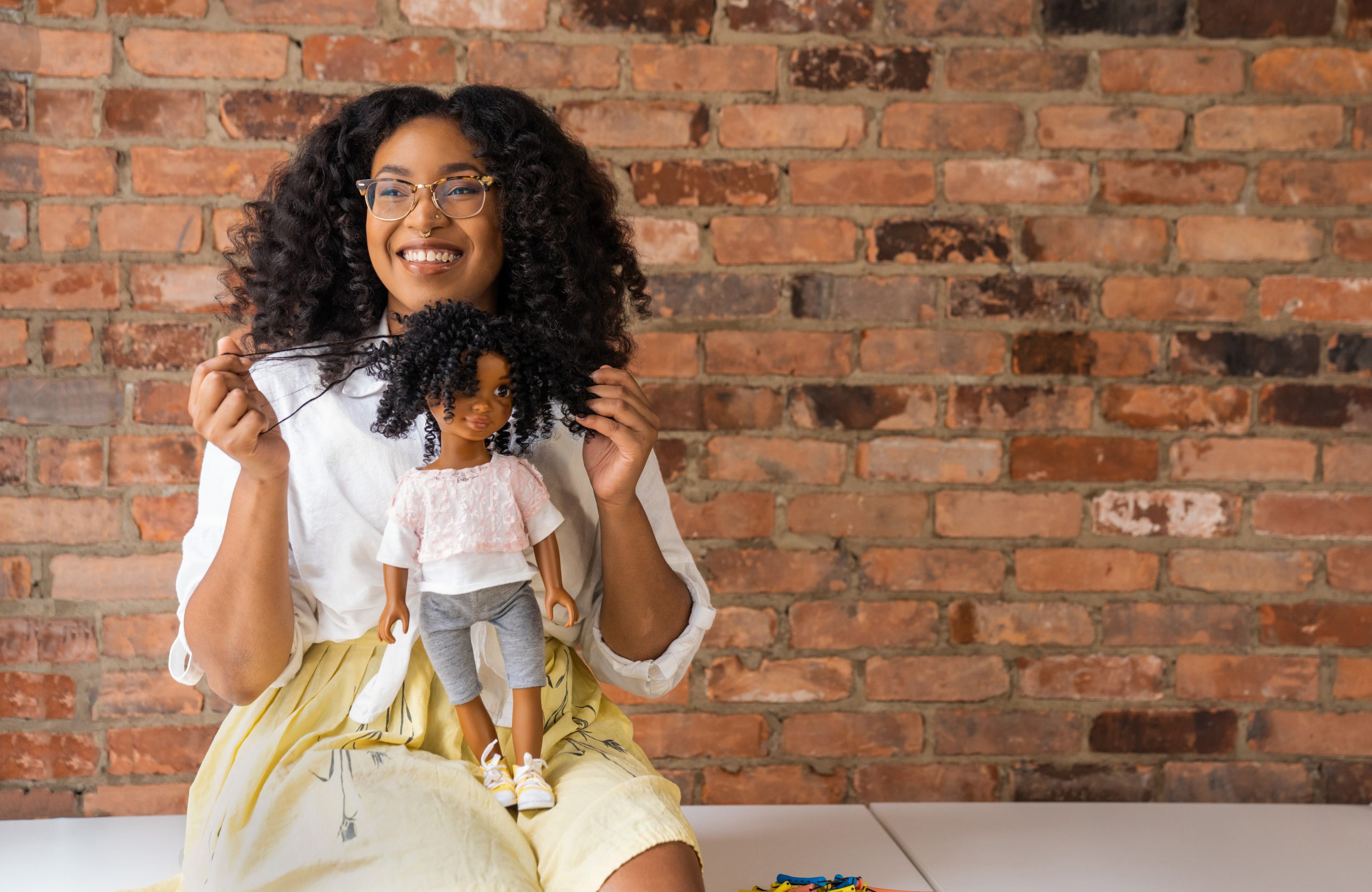The Crunchbase “Female Founder Series,” is a series of stories, Q&As, and thought-leadership pieces from glass-ceiling-smashers who overcame the odds, raised funding, and are now leading successful companies.
Yelitsa Jean-Charles, founder of Healthy Roots Dolls, is on the entrepreneurial journey of a lifetime. But her success story started long before her now famous tweet–including a side-by-side picture of herself and her company’s product–offered joy to so many amid tumultuous times.
Jean-Charles founded Healthy Roots Dolls in 2014 during her undergrad at the Rhode Island School of Design, but the initial idea behind the company was inspired by her own experiences.
“I never had a doll that looked like me, and my mother worked really hard to make me feel beautiful when she was doing my hair,” said Jean-Charles. “But, most of the time, I felt less like Cinderella and more like a pumpkin because I didn’t see more girls with hairstyles like mine celebrated as beautiful and valid, and that was an experience that a lot of women shared.”
Empowering the Next Generation
Throughout middle and high school, Jean-Charles said, it was so challenging to find ways to wear her hair. “I didn’t see women with natural hair or braids, and I really struggled,” she shared. It wasn’t until college that she started to unpack why styling her hair was always such a struggle.
“One of my friends cut off all of her hair, and I was shocked,” said Jean-Charles. “And when I asked why she did it, she said to me, ‘Well I’ve never seen what my hair looks like as it naturally grows.’ It was at that moment that I thought for the first time, ‘Neither have I. I’m 20 years old and I don’t even know what my hair looks like.”
That realization led Jean-Charles to go natural herself, wearing her hair curly. “I started out with a pixie cut, not to mention it was bleached. It wasn’t very good, but I was learning.”
At the same time, Jean-Charles was involved in the Black Lives Matter Movement after the death of Mike Brown in 2014. She was actively participating in demonstrations and bringing important racial justice and equality conversations back to her campus, where she was studying illustration.
“That’s when I realized I wanted my social activism work to be part of my artistry. For me, that meant pursuing children’s media so I could influence the next generation,” she said.


Social Activism Meets Artistry
The initial idea for Healthy Roots Dolls came about during Jean-Charles’ junior year in college. She redesigned Rapunzel by turning her into a young Brown girl with kinky, curly hair, and her classmates said, “That looks like a doll.”
Inspired, Jean-Charles took her idea to Facebook, where she had eye-opening conversations with her peers. “I realized that many of these women never had a doll that actually looked like them growing up. We didn’t have dolls that had our hair, and while they were brown, they didn’t really look like us.”
Combining all she’d learned from conversations with her peers, her own experiences, and the inspiration from her remake of Rapunzel, Jean-Charles included her findings in a research paper for the Brown University Social Innovation Fellowship. She described her soon-to-be company, Healthy Roots Dolls, as a “multicultural children’s product company that makes dolls that teach girls to love their curls.”
After getting into the program and receiving a $4,000 grant, she turned to Kickstarter, where she raised $50,000 organically, all from people connecting with her product vision and the joy her doll, now named Zoe, could bring to young people and families.


Overcoming the Odds and Demonstrating Demand
As a young founder, Jean-Charles was told by many that she would not be successful raising funds. They didn’t believe that anyone would give her the money to make Healthy Roots Dolls a reality because, in their eyes, it was a toy company making Black dolls for Black girls.
But this doubt only fueled her fire.
Jean-Charles kept her head down and did the work necessary to prove there was a demand for her product. She knew the best way to do that was to generate revenue.
“My advice to founders, specifically those with product companies, is that the best capital will always be revenue. Revenue shows you if there’s demand, if people are connecting with your product, its design, its price point, if your marketing is effective, all that jazz,” said Jean-Charles.


Not All Money is Good Money
To continue to build momentum, finding investors was the next step. Jean-Charles shared the best piece of fundraising advice she’s ever received: be discerning. “Not all money is good money. You don’t need to accept all the money you’re offered, it’s about finding the right investors, strategic investors. Don’t be afraid to turn down money,” she said.
That’s why she didn’t go the traditional route and seek investors right away, she instead sought opportunities that would allow her to grow her business and figure out her audience.
“My general advice to any founder is, ‘Mind your damn business, and build your business. Focus on generating revenue, and everything else will follow,” she said.
The Role of Social Media
Jean-Charles’ viral tweet was not the first time she’s successfully leveraged social media to tell her story. She’s always been a social media person and, in fact, Healthy Roots Dolls wouldn’t exist without social media. “This all started on social media. It’s where people were able to connect with my story and how I was able to build organic interest and talk about social activism,” said Jean-Charles.
This connection with her story on social media carried over when she started her company, and helped her organically fundraise on Kickstarter.
“My general advice for leveraging social media is that people don’t know what you don’t tell them, and if you’re not talking about you, nobody is,” said Jean-Charles. “But I’m not trying to sell people anything, that’s not organic. People are more likely to engage with my business when I’m talking about the positive impact we’re having, whether that’s an awesome message from a customer, we’ve just achieved something, or we’re launching something new. It’s all about being authentic and real.”
Tapping Into a Social Movement
In the wake of the viral tweet that sparked a rapid increase in company awareness and a massive influx of orders, Jean-Charles reflects on why her message resonated with so many people at this moment in time.
“It was really interesting to see this take off now. We’ve been doing the work, but this is the first time people have understood that you don’t need to be Black to have a Black doll, and are coming to understand the importance of children having diverse products to play with,” she said. “The products that children are playing with are supposed to be educational, different and fun, and if you’re giving them the same thing every time, what kind of views do you think children are going to have with those limited experiences?”
All in all, the positive reception Jean-Charles and her team at Healthy Roots Dolls has received has been truly incredible. “We’ve had so many moms reach out and say they’ve had such a hard time finding something like this for their daughters. Young girls reach out excitedly saying, ‘She looks just like me!’ And, of course, at that point, I start crying and can barely make it through the rest of the message. It’s inspiring to see the impact we’ve already had and hear people’s stories.”
From being completely sold out, to having order requests come in from around the world, it looks like this is only just the beginning of Zoe and Jean-Charles’ journey.







